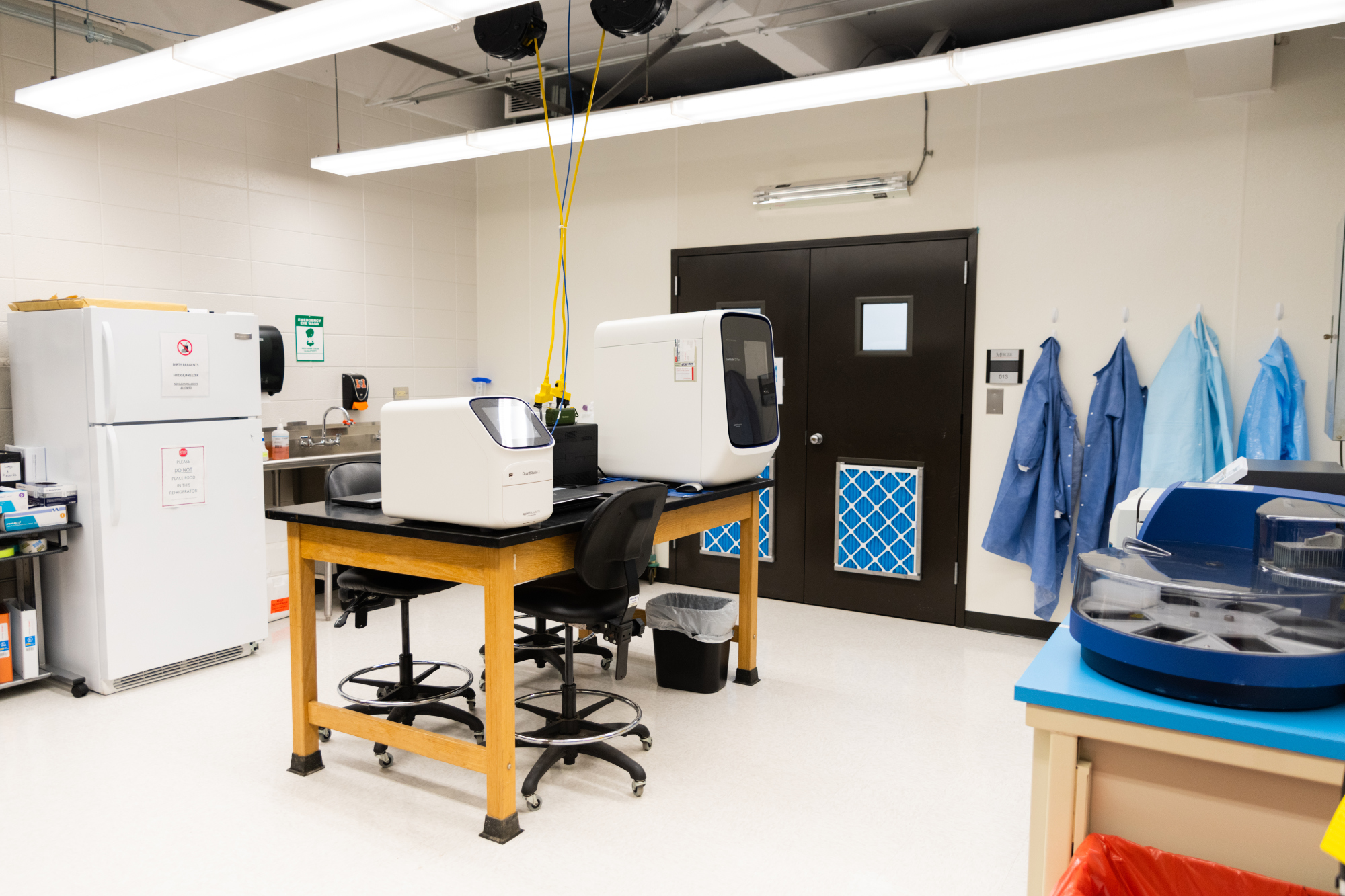MACON – Mercer University’s partnership with Louisiana State University Health Shreveport (LSUHS) recently identified one of the first 50 samples nationwide of SARS-CoV-2 subvariant BA.2.75, which is being closely monitored by the World Health Organization and the Centers for Disease Control and Prevention.
BA.2.75, first detected in India in May 2022, “has numerous mutations that may make it more adept than BA.5, the nation’s dominant strain, at spreading quickly and evading immune protection,” according to an Aug. 1 article in Becker’s Hospital Review. At the time of that report, the GISAID global data-sharing platform recorded only 41 cases of BA.2.75 throughout 14 U.S. states.
The sample collected by Mercer on July 14 and sequenced by LSUHS was the only reported case in GISAID from the state of Georgia as of Aug. 1.
“Mercer University School of Medicine and our partners are providing an invaluable service not just to the scientific community at large but also directly to rural Georgians,” said Peter Huwe, Ph.D., assistant professor of biochemistry at MUSM. “Knowledge that a fast-spreading variant has arrived in our state can empower residents to take steps to protect themselves.”
Mercer University School of Medicine and Mercer Medicine began a partnership with LSUHS earlier this year through a grant received from the Rockefeller Foundation.
“The collaboration with LSUHS is another example of Mercer Medicine’s and the School of Medicine’s commitment to public health, pursuit of scientific discovery, and the cooperation necessary to be at the forefront of identifying any future SARS-CoV-2 variants,” said Vance Mack, molecular diagnostics lab manager for Mercer Medicine.
Mercer serves as an accelerator site working with LSUHS to track COVID-19 variants in communities throughout the state of Georgia.
“Being able to monitor and track the spread of dominant SARS-CoV-2 variants as well as identify less dominant subvariants is why viral genome sequencing is so important,” said Krista Queen, Ph.D., director of viral genomics and surveillance at LSUHS. “Because of our capabilities and the partnerships we have established, we are able to work together with our colleagues around the country to better understand how COVID-19 is spreading, educate our respective communities about our efforts and how they can protect themselves, and inform public health decisions with sequencing data.”
About Mercer University School of Medicine (Macon, Savannah and Columbus)
Mercer University’s School of Medicine was established in 1982 to educate physicians and health professionals to meet the primary care and health care needs of rural and medically underserved areas of Georgia. Today, more than 60 percent of graduates currently practice in the state of Georgia, and of those, more than 80 percent are practicing in rural or medically underserved areas of Georgia. Mercer medical students benefit from a problem-based medical education program that provides early patient care experiences. Such an academic environment fosters the early development of clinical problem-solving and instills in each student an awareness of the place of the basic medical sciences in medical practice. The School opened additional four-year M.D. campuses in Savannah in 2008 and in Columbus in 2021. Following their second year, students participate in core clinical clerkships at the School’s primary teaching hospitals: Atrium Health Navicent The Medical Center and Piedmont Macon Medical Centers in Macon; Memorial University Medical Center in Savannah; and Piedmont Columbus Regional Hospital and St. Francis Hospital in Columbus. The School also offers master’s degrees in preclinical sciences and biomedical sciences and a Ph.D. in rural health sciences in Macon and a master’s degree in family therapy in Macon and Atlanta.









